
The first rule of adulting is to care about your credit score as much as you care about passing your exams. Only this test never ends, and it affects your entire life. High school taught you a lot of really valuable lessons, like how the mitochondria is the powerhouse of a cell. But has anyone taught you how to build credit? Or how to use a credit card? Nowadays, you can’t get a cell phone or rent an apartment without good credit. Even some jobs require you to have a good credit score. Building your credit score cannot wait until after exams, you need to do it now. Welcome to “How to build credit for beginners: Introduction to credit cards.”
What is Credit?
Credit is money that you borrow from a bank or other financial institution; they are also called creditors or lenders. Very few people have enough of their own money on hand to purchase a house, new car, or pay the full cost of their university program with spare cash. So they borrow money to help them pay for the expensive things. They take our mortgages, student loans, and personal loans.
When you borrow money, it’s called a loan. Personal loans, like your student loan for example, cost interest and need to be paid back within a specified period of time, called a term. Interest is the extra money you pay back to the lender on top of the original amount you borrowed. All loans charge interest. Lending is a business and it needs to be profitable so people continue to have access to credit when they need it. Think of interest as the price you pay to use someone else’s money. Any money you owe to a creditor is called debt.
What is a credit score?
Before any lender will give you money, they will check your credit score. Your credit score is a 3 digit number on a scale of 300 to 900. 300 is the worst credit score, and 900 is the best. It’s like a grade that evaluates how well you manage your debt; the money you owe to other people. Your score is determined by:
- Payment history: whether or not you make all your payments on time
On-time payments are good. Late or missed payments are bad. - Credit utilization: how much money you owe on credit cards and lines of credit
Low or no balances owing are good. High balances are bad. - Age of credit file: how old or new your credit file is, and the average age of your credit accounts
Older is better. New is considered risky. - Types of credit: how many different types of credit products you have like credit cards, installment loans, lines of credit, etc.
Too many credit cards or installment loans are bad. Different kinds of credit are good. - Public records: court judgements, bankruptcies, collection accounts, etc.
All public records are bad. - Inquiries: how often other creditors have checked your credit file.
A few inquiries in a year are ok. A lot of inquiries in a short period of time are bad.
Do want to get a high or a low number?
The higher the score the better. It means you’re really good at keeping your word because you paid back your loans as agreed. If you have a low score, it usually means you didn’t make your payments on time, you missed payments altogether, or your creditors had to pursue you legally to make you pay back the money you borrowed. But sometimes a low score simply means you are very new to credit so your credit history isn’t long enough to indicate how you handle debt; it’s just too early to tell.
Students and young people often have lower credit scores without ever missing a payment, or even carrying any debt at all. Part of your credit score is based on how old your credit file is. If you are brand new to credit, your credit card or student loan is probably your very first credit account. Your credit score will naturally be lower than average even though you haven’t done anything wrong. Just give it time.
Students and young people often have lower credit scores without ever missing a payment, or even carrying any debt at all. Part of your credit score is based on how old your credit file is. If you are brand new to credit, your credit card or student loan is probably your very first credit account. Your credit score will naturally be lower than average even though you haven’t done anything wrong. Just give it time.
Why is your credit score important?
Your credit score is important because it tells creditors how trustworthy you are. If you have a bad credit score you will be charged much higher interest rates, which means your debt is a lot more expensive than someone with really good credit who borrowed the same amount. You also run the risk of being denied credit altogether. How will you get to work if you can’t get approved for a car loan? How will you pay for tuition next year if your bank won’t increase your student line of credit?
Your credit score is important for things other than borrowing money too. If you want to open a cell phone in your own name, the mobile phone company will check your credit score. If you want to rent an apartment, the landlord will check your credit score. Even some employers will look at your credit report when you apply for a job. That’s because your credit score isn’t just about debt and credit, it says a lot about your character too.
If you fail to manage your debt properly, it will hold you back from being able to live independently. If your credit is very poor, you may not be able to move into your own apartment. You may need roommates, or continue living at home. You could be denied a really great job after you graduate, making it harder to find meaningful employment. That could affect your ability to pay back your student loan. And what if you can’t even get a cell phone in your own name? How do you feel about depending on your parents for things you should be able to do yourself?
When can you start to build a credit score?
You don’t have to wait until you graduate to start building a good credit score. You can start right now, even if you aren’t 18 yet. Here are some ways you can start off on the right foot:
Ask a parent to co-sign a joint credit card
If you are too young to open a credit card in your name, ask one of your parents to co-sign on a joint credit card account with you. You will each be issued your own card linked to the same account. The activity will be reported to both your credit files and you will both be equally responsible for the monthly payments and outstanding balances.
Open your own credit card
Depending on the province you’re in, you may be old enough to open a credit card without a cosigner. If you live in Alberta, Manitoba, Ontario, PEI, Quebec, or Saskatchewan you can open your own credit card when you turn 18. For all the other provinces and territories, you have to be 19. You will be the only one named on the account, and you alone are responsible for the payments and any balance owing.
How to use a credit card to build your credit score
Understand what your credit card is for
Your new credit card is not free money. Nor is it extra income to help you buy the things you want, but can’t afford. It is either a tool if you use it properly, or a weapon of destruction if you don’t. Your credit card is a means to build a strong credit score so that you can achieve bigger financial goals down the road.
Pay off your credit card every month
It is a myth that you need to carry a balance on your credit card to build a good credit score. In fact, the best way to use your card is to pay it off every single month before the due date. Use your credit card for purchases you need to make every month anyway, like your cell phone bill or gas for your car. Keep track of your purchases then pay off the entire balance owing before your payment due date.
Make your credit card payments on time
Sometimes an unexpected expense comes up, like a $600 textbook on the syllabus. Or someone rear-ended your car on the way to class. If you need to carry a balance on your credit card because life happened, make sure you make the minimum monthly payment on time without fail. Once things are back on track, put as much extra money onto your credit card as possible until it’s paid off.
Keep your credit card balance low
If you have to carry a balance, try your best to keep it under 30% of your credit card limit. That means if you have a credit card that allows you to borrow up to $3000, do not carry a balance over $900. If your balance crosses over that 30% threshold, it starts to damage your credit score.
Don't apply for a lot of credit cards at once
Every time you apply for a credit product, like a loan or credit card, that creditor will access your credit file to check your score. That’s called a “hard” credit check. A few a year is ok and expected. But if you have too many hard credit checks in a short period of time, like a few weeks or months, it can really damage your credit score. That’s because a lot of credit checks make it look like you are desperate for credit, which makes you look risky in the eyes of lenders.
Don't close your credit card
If you find you just don’t use your credit card often, or at all, you may be tempted to close it. Try not to close your credit accounts. The older your credit card is, the more it helps your score. Use it once or twice a year to keep it active, and pay off the balance immediately. If you’re worried about it getting lost or stolen, put it in a safe place and sign up for a free credit monitoring app like Borrowell. You’ll be able to keep track of your score for free, and you’ll be able to see if there is a mysterious balance owing on a card you rarely use.
Best credit-building cards for beginners
The best way to build your credit score is to use credit. But it’s very difficult to qualify for credit without a good credit score. It can be a frustrating catch-22. Luckily, many banks, alternate lenders, and others offer credit cards specifically designed for those who are new to credit. Here are a few of our favourites:
Start early with a prepaid card and learn how to manage your money
KOHO Prepaid Card
Before you jump right into the kind of credit card real grown-ups use, it’s probably a good idea to get your feet wet with a prepaid credit card first. It’s not a credit card, so it won’t help you build a credit score. But it’s a great way to get used to going cashless and managing your money. The KOHO prepaid card is perfect for beginners just like you. Soon, you’ll be broke as a joke, eating ramen noodles while you pull all-nighters cramming for exams. If you open the KOHO No- Brainer Cash Back Account, you’ll get almost free banking with crazy cash back perks. That’s great news for high school students trying to save up for college.
How does it work? Once you open your premium cash back account, you’ll get a KOHO Mastercard® prepaid card that you can use everywhere Visa is accepted. You load the card with funds from your own bank account, so you never owe money or pay interest. You can use your account like a guilt-free spending account. All your transactions are free and you’ll earn 2% cash back on restaurant, grocery and transportation purchases. You’ll even get access to free financial coaching. And, the money you deposit into your KOHO spending or savings accounts also earns 1.2% interest! That’s way more than the traditional banks offer on their savings accounts.
Mogo Visa Platinum Prepaid Card
If you care about adulting, and the environment, let me direct your attention to the Mogo Visa Platinum prepaid card. It’s a prepaid card, not a credit card, so it won’t help you build a credit score. Again, it’s a great way to take control of your finances without the risk of damaging your credit while you’re still learning the ropes.
Mogo will plant one tree every time you use their Visa Platinum prepaid card to make a purchase. Just 10 transactions a month would not only offset your carbon footprint, it would make you climate positive. You also earn Bitcoin cash back rewards. They have built in budgeting features that help you save more money to reach your goals faster. The average Mogo user reports saving over $200 a month with the Mogo card! That’s a lot of pizza for those intense, late-night study sessions. Or even better, that’s money you can invest to build an even brighter financial future.
Use a secured credit card to build your credit score without a co-signer
Plastk
Annual Fee: $48
Welcome Offer: 5000 bonus welcome points
Interest Rate: 17.99%
Plastk is another secured credit card option that’s great for beginners. You can start building your credit score and earn awesome cash back rewards in the process. Plastk is the first secured credit card in Canada to offer premium rewards. You can even use your points to pay your balance, or donate them to charity! And it offers a lower than average interest rate. If you’re a student, they’ll waive both the annual and monthly fee for the first year, that’s $120 worth of savings. You’ll also get free credit score monitoring and access to their credit education program. You can even send money to other Plastk users quickly and easily, a great Canadian alternative to Venmo.
Sign up for a student-focused or cashback credit card
BMO Air Miles Student
Annual Fee: None
Welcome Offer: 800 bonus Air Miles upon sign up
Interest Rate: 19.99%
The BMO Air Miles Student credit card is great for beginners with limited or no credit history and modest incomes. You can apply online and get approved in under a minute. If you plan to travel during spring break or want to see the world before settling into corporate life, you’ll love the Air Miles rewards. They’re also great for students studying out of province or abroad, who travel back and forth to see family.
In addition to the welcome offer, you’ll earn 3 x the Air Miles on credit card purchases of $25 or more at participating stores. You also earn 1 Air Mile per $25 dollars of credit purchases at any non-participating merchants.
BMO Cashback Mastercard
Annual Fee: None
Welcome Offer: 5% cash back rewards on qualified spending categories for the first 3 months, to a total of $2,500 of card purchases (conditions apply)
Interest Rate: 19.99%
Nothing is more versatile than cold hard cash. The BMO Cashback Mastercard will put money back in your pocket. You can use your cash back rewards for books, groceries, and maybe even some school spirit wear. Or you can be a cash back master and use the rewards you earn to invest. The possibilities are endless.
In addition to the welcome offer, you’ll get 3% cash back on groceries, 1% on recurring bill payments, and 0.5% on all other spending categories. You’ll also get an introductory balance transfer rate of just 1.99% + plus a 1% balance transfer fee, for the first 9 months. So if this isn’t your first rodeo and you have a nagging balance owing on another card, now's the time to transfer it and pay it off faster.
Conclusion
In order to build a great credit history, you need to use credit. The easiest way to do that is to open a credit card and use it wisely. Contrary to popular belief, credit cards are a powerful way to build financial independence. You can even do it without ever going into debt or spending a dime on interest.
When you’re new to credit, there’s a lot of conflicting advice out there. It’s hard to know what to believe when it comes to starting your credit journey. So whether you’re a student using credit for the first time, or you’ve had credit cards for years, there’s only one way to achieve an amazing credit score without going into debt:
The big credit secret
Pay your balance off in full every month. That’s it, that’s the secret. Choosing the right credit card for your needs depends entirely on what you want from your card. In order to build a credit history, you need to pay the balance off in full every month before the due date. Most cards include a 21-day interest-free grace period, so use it. With this trick, you’ll never pay a dime in interest or miss a payment. That makes the annual interest rate entirely irrelevant since you’ll never actually pay any. You can focus on choosing the card with the best rewards for your needs. Plus, you’ll build a killer credit score.
FAQs about using credit cards to build your credit
To build credit with a credit card, it's important to use it responsibly. This means making on-time payments and keeping your credit utilization low. Start by using your card for small purchases and paying the balance in full each month. Over time, your credit score will improve as you demonstrate your ability to manage credit responsibly.
There are several ways to build credit without a credit card. You can take out a small loan, such as a personal loan or a car loan, and make on-time payments. You can also become an authorized user on someone else's credit card, as long as they use it responsibly. Another option is to use a secured credit card, which requires a cash deposit and can help you establish credit if used responsibly. Finally, you can ask utility companies to report your payment history to credit bureaus, which can help build your credit over time.
While increasing your cumulative credit limit by opening many credit cards could help you improve your credit score, having too many credit cards can make it difficult to keep track of your spending and may lead to overspending and debt. In general, having one or two credit cards that you use responsibly can help you establish and improve your credit. Ultimately, the key is to use credit responsibly and avoid taking on more credit than you can handle.
Capital One cards are generally good credit cards to help you rebuild your credit, as many of their cards are designed for individuals with limited or average credit histories. However, it's important to use the card responsibly by making on-time payments and keeping your credit utilization low.
Charge cards can help build credit, since they report to the credit bureaus. Unlike regular credit cards, charge cards require you to pay your balance in full each month, so they don't involve interest charges or revolving debt. As a result, they may be easier to manage for those who struggle with credit card debt.
Prepaid credit cards generally do not build credit. Prepaid cards are not credit products, but rather a form of debit cards that you can load money onto and use to make purchases. Because there is no credit involved, using a prepaid card does not affect your credit score. However, some prepaid credit cards such as KOHO offer a credit building add-on that can help build your credit.







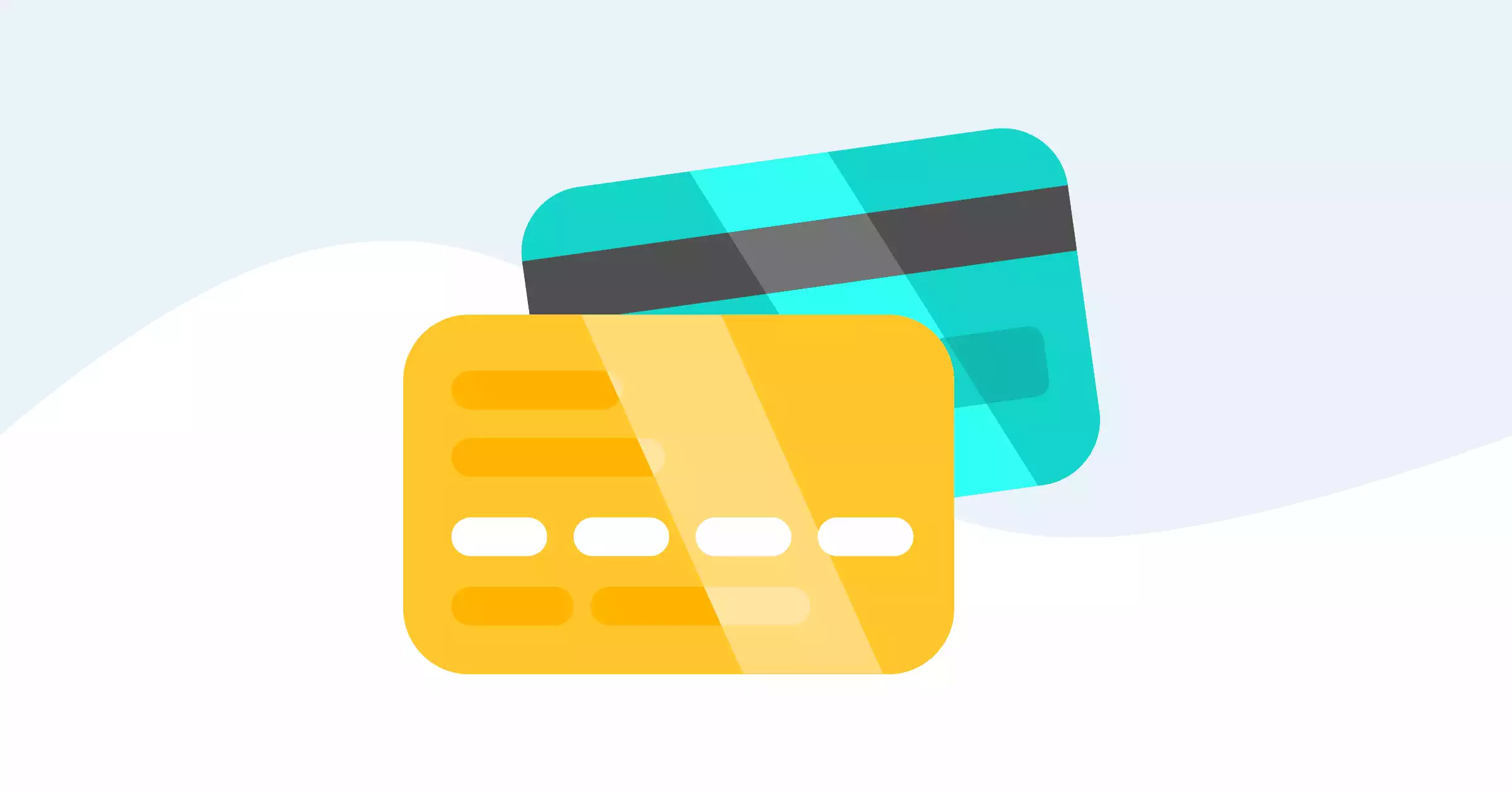
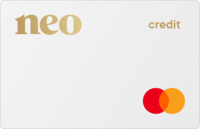
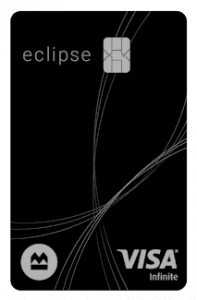


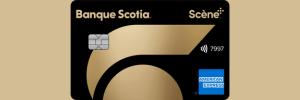





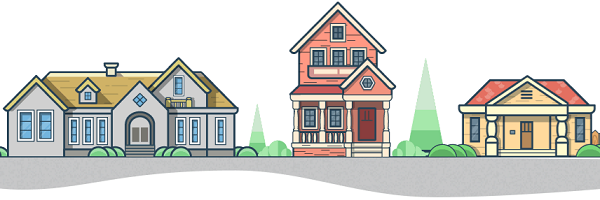







About The Author: Heidi Unrau
Heidi Unrau is the senior Finance Journalist at Hardbacon. She studied Economics at the University of Winnipeg, where she fell in love with all-things-finance. At 25, she got her first bank job as an entry-level teller. She moved up the ranks to Credit Analyst, Loans Officer, and now a Personal Finance Writer. In her spare time, you'll find her hiding in the car listening to Freakonomics podcasts, or binge-watching financial crime documentaries with a pint of Häagen-Dazs. When she's not chasing after her two little boys, she's in the hot tub or arguing with her husband over which cash back card to use for date night. She’s addicted to coffee, crypto, and obsessively checking her credit score on Borrowell.
Fun Fact: Heidi has lived in five different provinces across Canada, loves her free Tangerine bank account, and will never cut back on Starbucks. Like ever.
More posts by Heidi Unrau